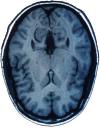Memory loss

 Alternative Names: Forgetfulness; Amnesia; Impaired memory; Loss of memoryDefinition: Memory loss (amnesia) is unusual forgetfulness that can be caused by brain damage due to disease or injury, or it can be caused by severe emotional trauma.
Alternative Names: Forgetfulness; Amnesia; Impaired memory; Loss of memoryDefinition: Memory loss (amnesia) is unusual forgetfulness that can be caused by brain damage due to disease or injury, or it can be caused by severe emotional trauma.
The cause determines whether amnesia comes on slowly or suddenly, and whether it is temporary or permanent.
Normal aging may result in trouble learning new material or requiring longer time to recall learned material. However, it does not lead to dramatic memory loss unless diseases are involved.
Causes
- Aging
- Alzheimer’s disease
- Neurodegenerative illness
- Head trauma or injury
- Hysteria often accompanied by confusion
- Seizures
- General anesthetics such as halothane, isoflurane, and fentanyl
- Alcoholism
- Stroke or transient ischemic attack (TIA)
- Transient global amnesia
- Drugs such as barbiturates or benzodiazepines
- Electroconvulsive therapy (especially if prolonged)
- Temporal lobe brain surgery
- Brain masses (caused by tumors or infection)
- Herpes encephalitis
- Other brain infections
- Depression
Call us now if there is any unexplained memory loss. The doctor will perform a thorough examination and take a medical history. This may require asking questions of family members and friends. Physical examination may include a detailed neurological examination. Recent, intermediate, and long-term memory will be tested. Diagnostic tests that may be performed include Cerebral angiography, CT scan or MRI of the head, EEG, Blood tests (for specific diseases that are suspected), Psychometric tests (cognitive tests), Lumbar puncture

